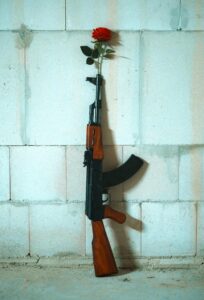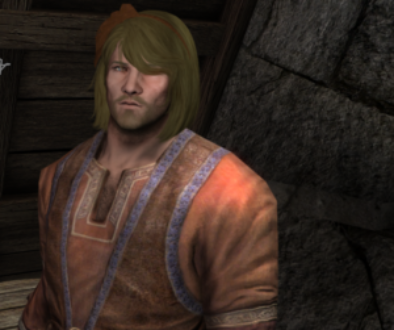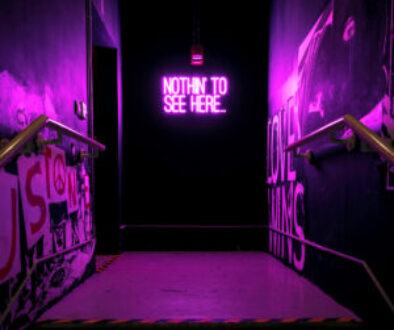The Ripple Effect of Gun Violence

Today, I’m going to take you on a journey through time. The year was 1998. I was a sophomore in high school when the news of what happened at Thurston High School broke that spring. My friends and I were looking forward to summer, making plans with friends. In an instant, the sunshine and idle gossip were shattered. At the fragile segue between childhood and adulthood, we were forced to question whether our school was a safe place. I remember wondering what would happen if it sparked a trend or inspired a copycat killer. The school administration and other adults assured us all we were safe, that this was unlikely ever to happen again. They would make sure of it. Besides, Kip Kinkel was mentally ill. They boiled it down to being a one-off tragedy, a terrible moment in time.
The very next year, three students entered Columbine High School with an assortment of guns and started shooting. I’ll never be able to erase the memory because I was sitting in journalism class when it hit the news. We always watched the news in that class; it was what we were studying. All of a sudden, someone shouted to turn the TV up. We all watched in horror as kids were shown running from the building, some bloody, most of them in tears. I couldn’t believe what I was seeing. Even though all the adults had promised us it wouldn’t happen, here we were. Again. My brain was absolutely melting. None of us was more horrified, though, than the girl who sat next to me. Her cousin was a Columbine student.
I remember sitting in class with her, telling her it was probably going to be okay — I had to say “probably” because I didn’t know if things were really okay after what had happened the year before. Like her, I had no way of knowing if her cousin was among the lucky students to be safe outside or if she was one of the unlucky students trapped inside. Maybe she was even among the most unfortunate kids whose last breaths were spent crying for their parents or wondering why this was happening to them.
I felt icy and numb as I told her, “Look at how many kids are running out. Maybe your cousin is with them.” Then, “Look, the police are there now. They’re going to stop the shooters.” And also, “Look, they’re getting kids to the hospital so fast.” I would later learn that her cousin had escaped early on and was alright. In hindsight, it’s sickening that kids should be put in a situation where they’ve got to counsel each other through gun violence, where they’ve got to look so hard to find silver linings among tarnish and bloodstains.
In the days and weeks to come, all the hope I had that the adults of the world would stop school shootings was erased forever. I wanted to believe we were better than that — that our country was capable of so much more because we were the greatest country in the world. I thought we were freedom and Disneyland. I thought we cared about people. Even then, I could see I’d been wrong.
Going forward in time…
As years went by and more tragedies unfolded in school after school, the distrust that many adults had earned in my mind intensified. I was a young adult myself, and after military service in a position of carrying multiple guns with me to work daily, I was greatly disturbed by the extent to which so many people glorified guns. I knew guns as a tool for one thing: killing. Others knew guns as a status symbol, as a source of entertainment, as bragging rights, as their ticket into (largely White) gun culture, as their way of intimidating others, as their way of gaining power and control, and for some, as their way of forcing their will onto others.
If that sounds bad, what’s worse is knowing these people have multiplied in today’s society. I used to think they were rare. Sometimes, the police would turn over a large rock in a flyover state and they’d scuttle away looking for a new rock to hide under. After electing president the king cockroach himself, they’re out waving their guns in the open, not a care in the world. It’s awful knowing they could care less if children are dying at gunpoint as long as they get to keep their guns. It’s a terrible thing to realize they don’t care about cruel and unstable people mowing down crowds of people in shopping malls and at concerts as long as they don’t have to turn in their weapons.
What’s more is, they won’t care about any of this until it happens to their own families or in their own towns. They won’t care until their dirt roads run red and their bibles are soaked in the blood of their parishes. Knowing what I know, I wouldn’t wish that on them. Like the children who die in our schools, they don’t understand the consequences of their choices.
So, what’s to be done? How can we make meaningful change?
Speak up
By having conversations about our own experiences with gun violence, we stand a chance at being heard. With each person who talks about where they were on the day of Thurston, or Columbine, or Sandy Hook, or Uvalde, we can help others understand how gun violence sends a ripple effect that travels far beyond the communities these tragedies happen in. We can bring emotion and empathy to a topic that’s now being used as a political playing chip so the same group of old, white men can get paid obscene wages for showing up to a full-time job on a half-time basis.
If you’ve experienced the effects of gun violence, no matter how large or small the scale, take the time to tell your stories at work, at school, at church, on social media, or in the comments below. Together, our voices can rise above the political frenzy created by people who want to keep the status quo. You never know what your story might accomplish.



